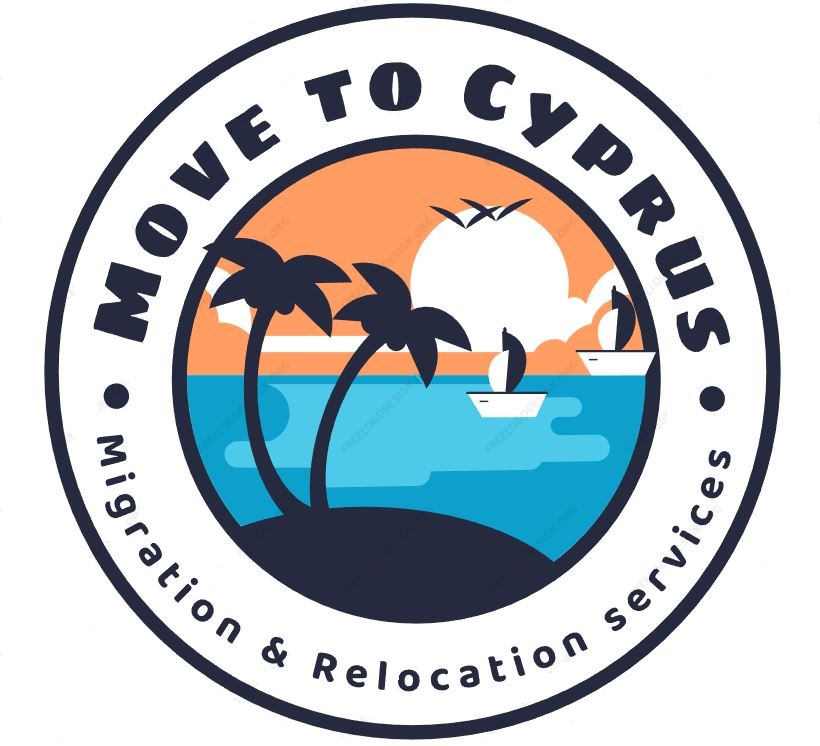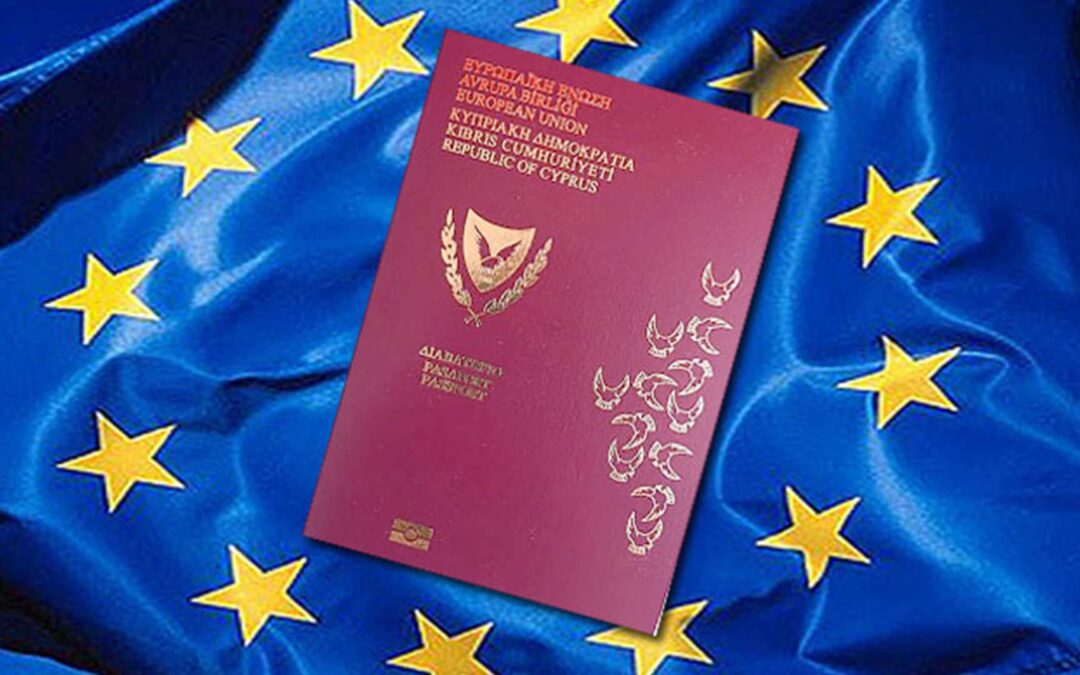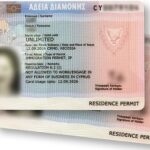CITIZENSHIP AUTHORITY
The authority responsible for examining applications and granting citizenship to the Republic of Cyprus is the Civil Registry and Migration Department. The Civil Registry Section, a specially established Department, deals with citizenship issues.
CITIZENSHIP – GROUNDS FOR ACQUIRING CYPRIOT CITIZENSHIP
As of today, the legislation of the Republic of Cyprus provides three possible ways of acquiring citizenship:
- by naturalization, after a certain period of residence in the country;
- because they married a Cypriot citizen;
- by descent/birth when one or both parents of the child are Cypriot nationals.
This article does not cover previously popular ways of obtaining Cyprus citizenship as an “investment” because as of 1 November 2020, Cypriot citizenship by the investment program, the so-called “golden passport,” is suspended indefinitely.
HOW TO APPLY FOR A CYPRIOT CITIZENSHIP?
The applicant should prepare a complete list of documents outlined below, including entries and exits from Cyprus (based on passport stamps), which should prove the above required days of stay. The application is submitted by each family member separately with the relevant fee payment.
The following documents should be attached to the application:
- Applicant’s birth certificate and a certified copy;
- Marriage certificate and copy (if applicable);
- Applicant’s divorce certificate and copy (if applicable);
- Originals and copies of all applicant’s passports (all used for entry/departure from the island) indicating arrival and departure to Cyprus (all pages);
- Separate list-reporting of entries and exits from the applicant;
- Copies of two consecutive publications (announcements in a daily newspaper of the Republic of Cyprus) indicating that the applicant indicates their intention to apply for citizenship by naturalization;
- Two photographs (passport format) stamped by the head of the local community (an official with the rank of a municipal official, the so-called “mukhtaris”) where the applicant resides;
- CV and work permit (if applicable);
- Confirmation of the applicant’s residency in the Republic of Cyprus (original);
- The applicant’s last residence permit in the Republic of Cyprus (Residence Permit) must be valid (original and copy).
Additional recommendation: it is also highly recommended to keep all (expired/previously issued) residence permits (and provide a copy if necessary);
- Alien Book/ARC document (original and copy);
original and a copy of the €500 application fee.
- Certificate of clear criminal record from the police (original);
you can obtain a clear criminal record at any police station. You will need to complete a questionnaire and pay a €17 fee. You will receive a clear criminal record certificate by post within two weeks. If you need the certificate urgently, you can obtain it from the Police Headquarters in Nicosia on the same day.
Some documents are not listed in the official list, but it is necessary or desirable to submit them.
Among them – highly important- is a certificate of work indicating the salary, copies of all diplomas, and certificates certifying the applicant’s basic and additional education (computer literacy courses, Greek language, etc.). Diplomas in other languages should be translated into English or Greek. Copies of “certificates of merit” indicating participation in public life (festivals, competitions, etc.) or charitable projects will also be helpful. After all, the applicant needs to show their best side, to convince the authorities that they are worthy of becoming a citizen of the Republic of Cyprus.
Timing and costs
The application fee is €500. The fee for approval is also €500. In total, you will have to pay €1000. Other costs are case-by-case and depend on the cost, timing, and means of processing the above documents.
According to the Government services, reviewing the application and granting citizenship takes about two years. Please note that in recent times these timeframes have constantly been increasing, despite the statements of the competent authorities of Cyprus that all measures will be taken to simplify the procedure and reduce the timeframe for processing applications.
Interviews
The applicant will be required to undergo two interviews during the processing period of the application for Cyprus citizenship:
First at the eparchos office (head of the District Administration Office) and then at the police department.
The first interview at the District Administration Office in your residence area will take place in about a month. It is advisable to address the interviewer in Greek and answer a few questions in Greek, and you may switch to English later. The interviewers usually ask about work experience, education, and marital status. Generally, the interview is friendly and takes no more than 15-20 minutes. After this, the applicant’s documents are sent to Nicosia. A second interview at the Immigration Office is decisive. In the best case, you’ll need to wait for this interview for a year and a half, and in the worst case, several years. You must prepare for it very carefully – it is decisive.
CITIZENSHIP BY NATURALIZATION – (M127)
Citizenship by naturalization can be obtained based on a certain number of years of residence in Cyprus.
As a general rule, any third-country citizen (“applicant”) who, at the time of application, has legally resided in Cyprus for at least 7 (full) years (365*7 = 2555 days of stay) may apply for citizenship. This number of days must be accumulated over no longer than a period of 10 years.
CYPRUS CITIZENSHIP IN REDUCED TIME
Reduced term options are provided for:
- Children or parents of Cypriot nationals: the deadline for submission is reduced to 5 years of residence;
- Cyprus permanent residence permit (Permanent Residence Permit, Category F) holders who have resided on the island for at least five years as of the date of application;
- Residents legally residing and working on the island for at least five years, having a residence permit/right to work on the island – the submission period is also reduced to 5 years of residence.
RULES FOR THE CALCULATION OF THE PERIOD OF STAY (DAYS):
To determine the number of full years of residence, you can use an online calculator (e.g., at https://ec.europa.eu) to calculate based on your passport’s entry and exit stamps.
However, more than just making the right calculation is required. Other criteria must also be kept in mind.
Legal stay means registration at the Department of Immigration and a valid residence permit.
Important Note: The applicant must have been resident in Cyprus for the last 12 months before applying.
CYPRIOT CITIZENSHIP FOR CHILDREN WHOSE PARENTS ACQUIRED CITIZENSHIP – (M126)
Minor children whose father or mother acquired Cypriot citizenship through naturalization or by marriage to a Cypriot national may also acquire Cypriot citizenship. For this purpose, it is necessary to submit the application form Ml26.
The following documents shall be attached to the application:
- The applicant’s birth certificate;
- The marriage certificate of the applicant’s parents;
- Photocopies of passports of the applicant and the applicant’s parents;
- Certificate of acquisition of Cypriot citizenship by the Cypriot parent (if applicable);
- Certificate of registration or naturalization of the Cypriot parent;
- Copy of school attendance certificate;
- A photocopy of the child’s valid temporary residence permit;
- A photocopy of the receipt of payment of 80 euro fees;
- Stamps at the cost of 8.54 euros per application;
- Two photographs
An application for a child is processed fairly quickly, usually within 3-6 months.
CYPRIOT CITIZENSHIP THROUGH MARRIAGE (M125)
A foreign spouse of a Cypriot national who has been married for at least three years and has been permanently residing on the island for two years at the time of application may apply for Cypriot citizenship.
For those spouses of Cypriot nationals who reside abroad, a slightly different approach applies; they are entitled to apply after three years of marriage. In this case, however, the couple must provide a factual justification for the purpose of the spouse seeking Cypriot citizenship.
With five years of marriage and at least one child, no justification is required.
List of documents to apply for citizenship through marriage:
- Applicant’s birth certificate and a copy;
- Certificate of criminal record of the applicant and a copy;
- Marriage certificate and a copy;
- Certificate(s) of birth of a child born in wedlock to a Cypriot national and copy;
- Original and copy of the applicant’s passport;
- Copy of the passport of the Cypriot spouse;
- Certificate (and copy) of the acquisition of Cypriot citizenship of the Cypriot spouse (if obtained, not by birth);
- Certificate of Harmonious Lifestyle signed by the District Administrative Officer or the Diplomatic Representative if the spouses reside outside Cyprus;
- A statement of cohabitation from the local authority.
- Proof of payment of the €300 fee (an original and a copy).
The application shall be submitted in duplicate, and one of the two application forms shall bear a stamp of paid fee of €8.54;
Timing and costs for Cypriot citizenship through marriage
The filing fee for the application is €300. Other costs are case-by-case and depend on the cost, timing, and means of processing the above documents. As a rule, it takes up to two years to review the application and grant citizenship on this basis, but recently, applications have been processed for longer.
CURRENT ISSUES IN ACQUIRING CITIZENSHIP
How to legalize/validate documents?
When making and submitting applications on any of the grounds above, it is always required to take into account that all public documents (certificates, certificates from the competent authorities of the original jurisdiction of the applicant, etc.) which have not been issued in Cyprus must be:
(1) Officially translated into Greek (English is also acceptable) and certified by a certified translator of the Republic of Cyprus;
(2) Certified/validated :
- Apostille if the country is a signatory to the 1961 Hague Convention;
- In case the country is not a signatory to the 1961 Hague Convention, the seal of the Ministry of Foreign Affairs of the applicant country, as well as the seal of the Embassy/Consulate of the Republic of Cyprus in the applicant country or the seal of the Ministry of Foreign Affairs of the applicant country, as well as the seal of the Embassy/Consulate of the applicant country in the Republic of Cyprus, and then additionally certified by the seal of the Ministry of Foreign Affairs of the Republic of Cyprus.
- In case the country is not a signatory to the 1961 Hague Convention and does not have an Embassy/Consulate in the Republic of Cyprus, the documents must be stamped by the Ministry of Foreign Affairs of the applicant’s country and then stamped by the nearest Embassy/Consulate accredited in the Republic of Cyprus.
What are the reasons for the denial of Cypriot citizenship?
The grounds for refusal may vary. As a rule, refusals are associated with violation of the terms, for example, continuous interruption of their stay in Cyprus, the presence of a criminal record, failure to provide reliable information (both knowingly and due to the omission of the applicant), and formal errors in the execution of documents.
Do I need a lawyer to request Cypriot citizenship?
The simple answer is no, and a lawyer is not necessary if you have lived in Cyprus for a long time and have time and patience, have knowledge of the local legislation, you are fluent in at least English (or preferably Greek). You are confident in your abilities and ready to “go through” this procedure from “A to Z” by yourself.
The law does not require mandatory legal representation and expertise when applying for citizenship.
If you need to confirm that you meet all the above criteria and want to eliminate/minimize the risk of rejection due to mistakes or omissions in the preparation of documents, we recommend you seek professional legal advice.
The cost of such services usually depends on the pricing policy of the chosen law firm and the client’s capabilities. The prices are discussed individually.
A Cypriot national who acquired citizenship by naturalization or registration might be deprived of citizenship of the Republic of Cyprus if it was proven through fraud, false information, or concealment of important facts. The Council of Ministers decides on the deprivation of citizenship.
Second citizenship when first is citizenship is Russian
A Russian citizen may be a citizen of more than one country (i.e., have second, third, etc. Citizenship). In cases when a citizen of the Russian Federation acquires a second citizenship and this state does not oblige them to renounce the previous citizenship, they do not automatically lose Russian citizenship but acquire the second citizenship, becoming dual nationals. That is, when the holder of two passports, one of which is Russian, is on the territory of the Russian Federation, the state considers them exclusively as a citizen of the Russian Federation and vice versa.
Is a citizen of the Russian federation obliged to notify about their second citizenship?
At present, persons who have Russian citizenship, upon arrival in Russia, are obliged to notify the authorized bodies of the citizenship of another country within 30 days.
It is better to do it in time, as there is an administrative fine for late notification and failure to notify – a more serious responsibility, up to criminal liability.
POSSIBLE CHANGES IN LEGISLATION
Those who intend to apply for Cypriot citizenship soon should take into account that during the first half of 2021, a bill was introduced to the Parliament of the Republic which would largely unify and adjust the requirements for obtaining citizenship by naturalization (as of 1 July 2022 the law was not yet adopted).
According to the February 2021 amendments to the law on the granting of citizenship, foreign citizens will have to fulfill the following criteria to obtain a Cypriot passport:
- Lawfully reside in the Republic of Cyprus for 12 months before the date of application;
- In the ten years before the twelve months described above, it is legal to reside in the country for at least seven years. When calculating the residence period, the period of residence under international protection, subsidiary protection, temporary protection, or student visa will not be taken into account;
- Criminal record, no contravention of the laws of the Republic of Cyprus by words or deeds, no internationally wanted person, no person under investigation, no person entering the Republic of Cyprus through illegal entry points (i.e., occupied areas), no person illegally residing in the country, no person endangering the public order and security of the Republic of Cyprus. The authorities will also take into consideration the criminal record of the spouse;
- Knowledge of Greek language at B1 level;
- Have sufficient knowledge of the country’s current political and social realities. This knowledge will be assessed by a special three-member committee representing the Ministries of Education, Interior, and Justice;
- Have a suitable place to live and a stable and regular income to support themselves and their family members without state support. The authorities will consider the applicant’s salary and other sources of income.
Exceptions will be made for people “rendering high-level services to the country,” such as athletes preparing to play for the Cyprus national team.
CYPRIOT PASSPORT IS ONE OF THE “STRONGEST” IN THE WORLD
Compared with 2021, this year, the Cypriot passport has moved up by one position – from 15th to 14th place, leaving behind passports of countries such as the UAE, Chile, Monaco, Romania, Bulgaria, and Croatia.
Estonia, Latvia, and Slovenia are in 10th place, Iceland is 11th, Malaysia is in 12th, and Liechtenstein is just above in 13th.
Cypriot citizens will be admitted without a visa or under the facilitated visa procedure to 176 countries/autonomous territories and require a visa to 51 countries or autonomous territories.
Two of the most influential passports in the world are those of Japan and Singapore. Their holders have visa-free or facilitated access to 192 countries. German and South Korean passports are in second place, with access to 190 countries.
The third place is shared by Finland, Italy, Luxembourg, and Spain (189 countries). They are followed by Austria, Denmark, the Netherlands, and Sweden (188 countries).
The last five passports on the list are those of Afghanistan (26 countries without a visa or through the visa facilitation procedure), Iraq (28 countries), Syria (29 countries), Pakistan (31 countries), and Yemen (33 countries).
The estimate is based solely on data from the International Air Transport Association (IATA), which maintains its own travel documents database.


